Implementing Resolution No. 202/2025/QH15 of the National Assembly and the guiding document of the Ministry of Science and Technology, the Department of Science and Technology of Dak Lak province (old) has proactively coordinated with the Department of Science and Technology of Phu Yen province (old) to develop a project to merge the apparatus. The project was approved by the People's Committee of Dak Lak province on June 25, 2025, on that basis, the Department of Science and Technology of Dak Lak province (new) was established with a complete organizational structure and personnel according to Decision No. 0136/QD-UBND dated July 2, 2025. The merger not only streamlines the apparatus but also creates favorable conditions for implementing the two-level government model in the field of science and technology in a unified, effective manner and in accordance with the current digital transformation requirements.
Perfecting infrastructure and digital platform
The Department of Science and Technology has actively advised the Provincial People's Committee to issue Plan No. 138/KH-UBND to ensure information technology infrastructure, digital platforms and e-government information systems. A number of core systems have been selected for continued use, including: document management software, online meeting system, executive reporting system, electronic information portal... The dedicated data transmission network has been expanded to 235 points, ensuring connectivity from the central to the commune level. All 2,087 administrative procedures (TTHC) have been configured, of which 100% of online public services have been integrated into the National Public Service Portal.
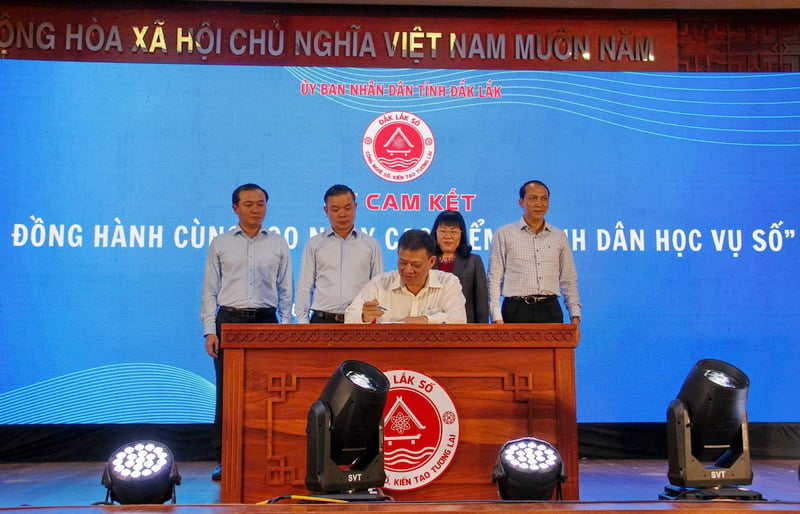 |
Representative of the Department of Science and Technology signed the Commitment to implement 100 peak days of Universal Digital Education |
Immediately after the Ministry of Science and Technology announced the list of administrative procedures under its management, the Department of Science and Technology advised on the issuance of Decision No. 1571/QD-UBND dated June 29, 2025 on the announcement of administrative procedures of the sector at the local level and publicized these procedures on the National Database on Administrative Procedures, and at the same time closely coordinated with the Provincial Public Administration Service Center to receive and return results, ensuring that the records are not delayed. Currently, the civil servant in charge of receiving administrative procedure records at the Center is concurrently held by the Provincial People's Committee Office, however, the coordination between units is considered effective, creating convenience for people and businesses.
Implementing Resolution No. 57-NQ/TW of the Politburo , Dak Lak province has demonstrated high political determination in developing science, technology, innovation and digital transformation. On July 3, 2025, the Provincial Party Committee issued Decision No. 119-QD/TU on the establishment of a Provincial Steering Committee with 26 members, headed by the Provincial Party Secretary.
Following that, on July 10, 2025, the first Steering Committee announcement conference took place with the launch of a series of AI platforms for policy lookup, "Dak Lak Digital" application, comprehensive monitoring and management system from province to commune... These tools not only help improve digital governance capacity but also put people and businesses at the center of the transformation process. On July 15, 2025, the Department of Science and Technology advised on organizing the "Dak Lak Digital" program - an event marking a turning point in comprehensive digital transformation in the locality. Here, the province evaluated the results of deploying digital platforms in three wards of Ea Kao, Tan Lap and Tan An. At the same time, the 100-day "Digital Education for All" movement was launched and the Digital Transformation Infrastructure Construction Project for the 2021-2025 period, with a vision to 2030, was launched. The program demonstrates the connection between digital transformation and socio-economic development, demonstrating the synchronous determination from the government to the people in modernizing the administrative system.
Despite many positive results, the Department of Science and Technology also clearly identified a number of major shortcomings: uneven awareness of the role of science and technology at the commune level; unsynchronized digital infrastructure in remote areas; lack of research facilities, lack of high-quality human resources; no clear legal framework for handling assets formed from science and technology tasks; and overlap between legal documents. In addition, the capacity to perform measurement inspection tasks at the commune level is still weak due to lack of human resources and specialized equipment. The decentralization of authority and administrative procedures in the field of science and technology is still unclear between levels, causing difficulties for implementation at the grassroots level.
Proactive, synchronous and linked to practice
From the implementation practice, Dak Lak province has drawn lessons that it is necessary to strengthen training, raise awareness and capacity for commune-level officials; at the same time, it is necessary to build digital infrastructure and human resources associated with local conditions. Completing specific mechanisms and flexible legal frameworks are also fundamental solutions for the two-level government model to operate effectively.
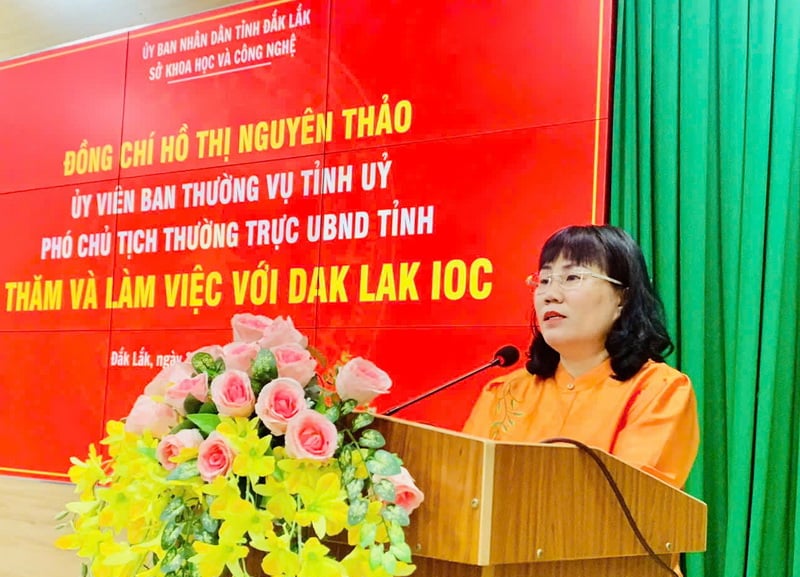 |
Comrade Ho Thi Nguyen Thao - Member of the Provincial Party Committee, Permanent Vice Chairman of the Provincial People's Committee spoke at the visit and working session with DAK LAK IOC Center. |
In the coming time, the Department of Science and Technology of Dak Lak province proposes key groups of solutions: Improving the capacity of grassroots cadres through training, coaching and compiling documents guiding the implementation of Resolution 57 suitable for the locality; Developing synchronous digital infrastructure, especially in disadvantaged areas; encouraging socialization of investment in technical infrastructure; Strengthening research and innovation capacity by building high-tech centers and business incubators; Attracting high-quality human resources, building reasonable remuneration policies, connecting training with schools and institutes; Equipping measurement and testing capacity at the commune level, supplementing equipment and organizing professional training; Proposing to perfect the legal framework and decentralization of procedures, amending Circulars and unclear regulations between levels; Guiding the handling of S&T assets and specific mechanisms, creating conditions for innovation tasks; Reviewing and clearly defining the decentralization between provinces and communes, ensuring local initiative; Propose to effectively operate the National Public Service Portal, connect data of ministries and branches and integrate SMS and Zalo notifications to improve people's experience.
Dak Lak province is gradually affirming its role in operating a two-level digital government associated with innovation and sustainable development. With strong political determination, proactive spirit and accompanying businesses and people, this model promises to be a solid premise for the period of extensive digital transformation in the following years./.
Ba Thang
Source: https://skhcn.daklak.gov.vn/dak-lak-chu-dong-van-hanh-mo-hinh-chinh-quyen-hai-cap-trong-linh-vuc-khcn-19716.html


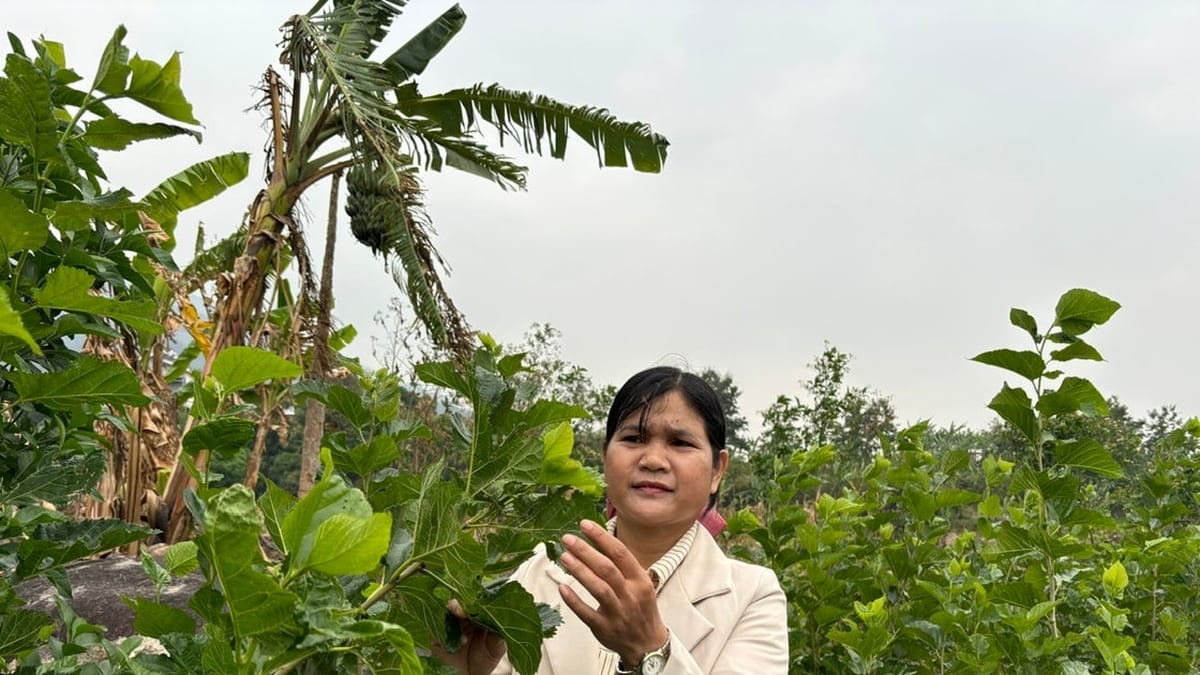
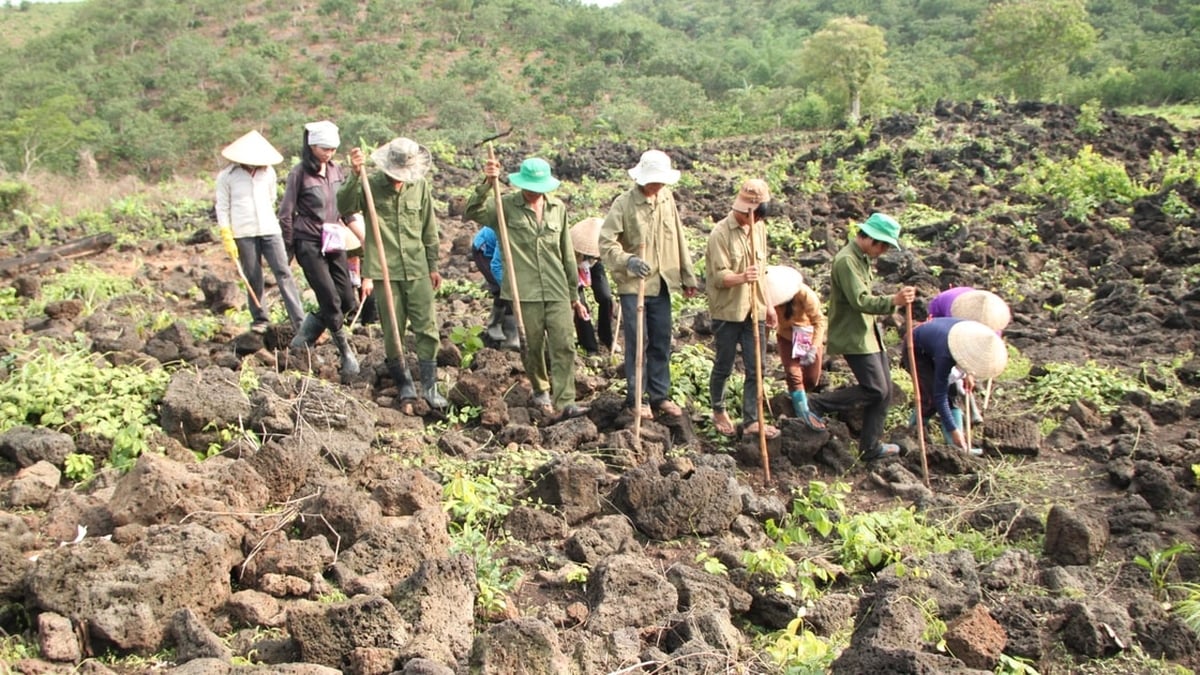




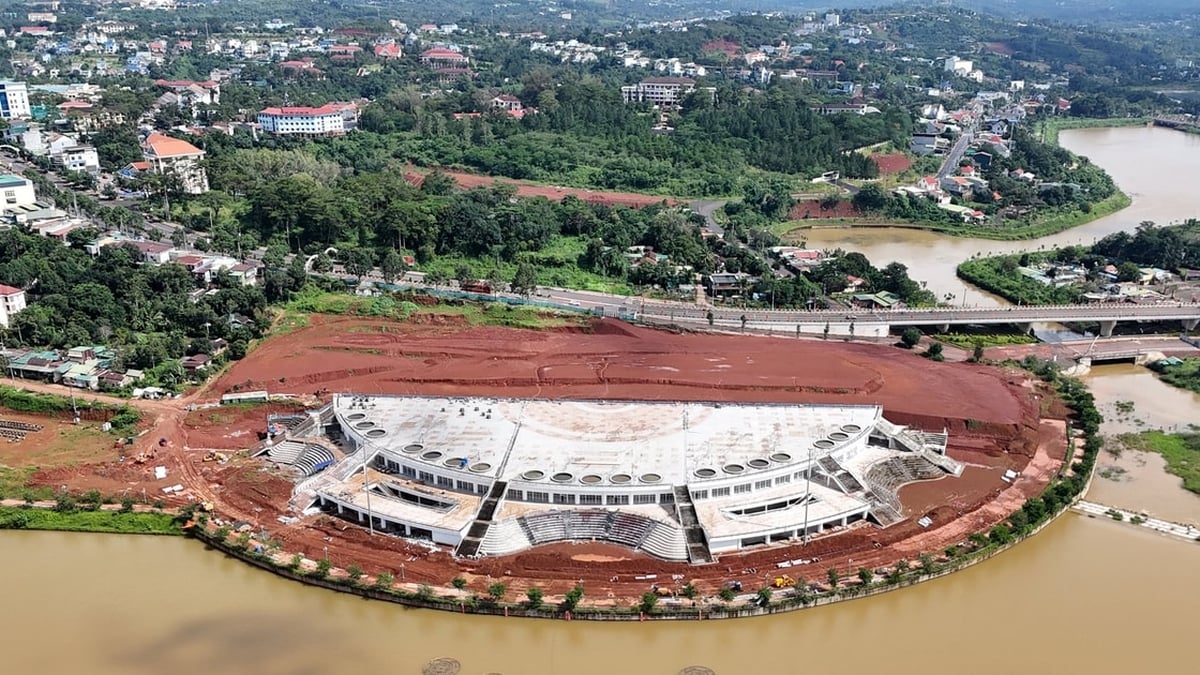




















![[Photo] Nghe An: Provincial Road 543D seriously eroded due to floods](https://vphoto.vietnam.vn/thumb/1200x675/vietnam/resource/IMAGE/2025/8/5/5759d3837c26428799f6d929fa274493)


























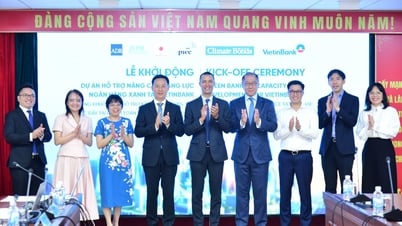





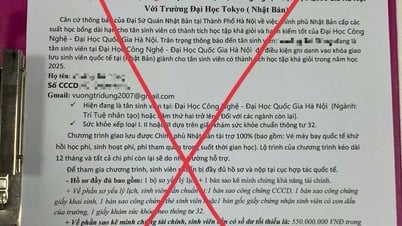
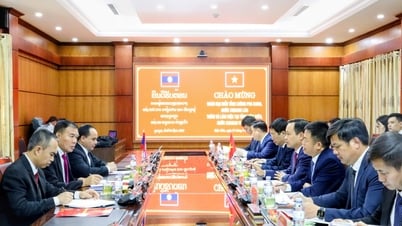


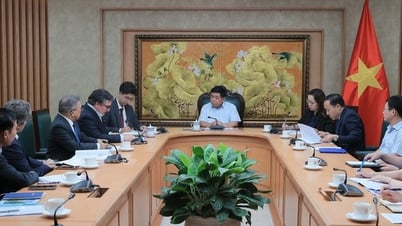


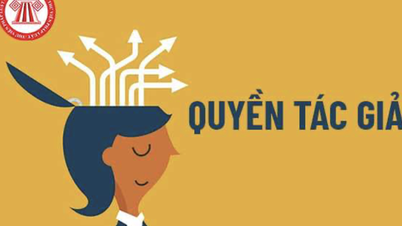

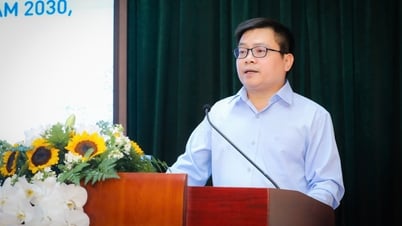


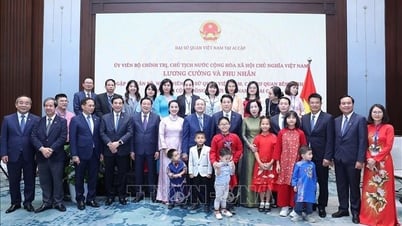

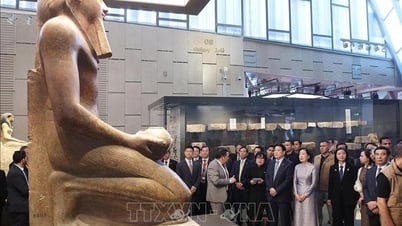
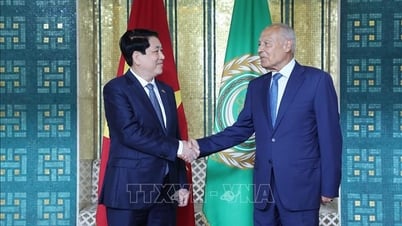





















Comment (0)